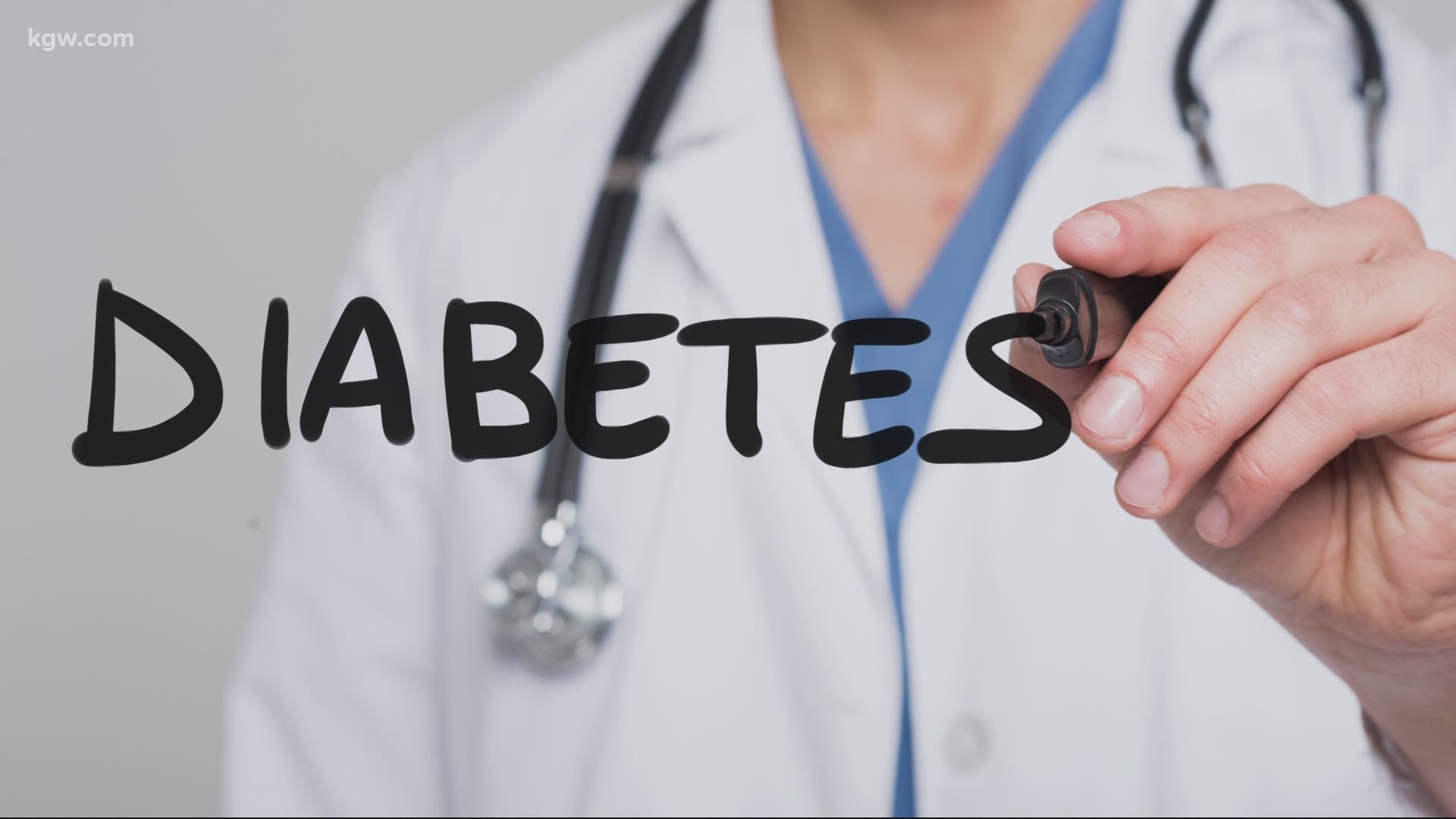PORTLAND, Ore. — A study from the Centers for Disease Control shows nearly half of American adults have underlying medical conditions that could put them at risk for severe COVID-19 symptoms.
The data cover adults in more than 3,000 counties.
Researchers found 47% of of people had at least one of the five underlying conditions that put people at risk for more severe illness during coronavirus:
- COPD
- Heart disease
- Chronic kidney disease
- Obesity
- Diabetes
"This time can be extra scary," said Kelsey Duman of Albany.
Kelsey and her husband, Derek, were both diagnosed with type 1 diabetes as children.
They met through a camp for people living with diabetes. They eventually married this May.
"So that worked out for us in the long run!" Derek Duman laughed.
However, the couple said during the COVID-19 pandemic, every aspect of life presents obstacles for staying healthy.
"We've really just been trying to focus on making those little changes that are going to make us safer and other people safer as well," Kelsey Duman said.
Judy Summers with the Oregon and SW Washington chapter of JDRF, a diabetes advocacy and support organization, said diabetes patients are not at higher risk for contracting coronavirus. However, they are more at risk for severe symptoms if they become infected.
"[Diabetes] can weaken the heart, it can weaken the kidneys," Summers explained.
Since diabetes and COVID-19 can both impact the organs, a diabetes patient with coronavirus is more likely to get seriously ill. Summers said prevention and protecting others are critical.
"We all need to stay safe, we all need to wear masks, we all need to social distance, wash hands," Summers said.
"[Diabetes is] known as an invisible illness," Kelsey Duman agreed. "Just think of other people and know that there may be things going on in their life that you're not aware of. And that your actions can impact those people."
The Dumans said many people with diabetes are being strategic through the pandemic. Their family, for example, is working with doctors to stock up on insulin and medication.
"We don't have to go to the pharmacy quite as often, which helps us to avoid those larger crowds," Derek Duman explained.
By cutting down on outings and social interactions, both the Dumans and JDRF said social isolation is a growing concern.
"Type 1 diabetes can be a very lonely disease, because it's not genetic," Summers said. "There may be only one person in the family that's diagnosed."
Groups like JDRF and Beyond Type 1 launched a new website to help connect the diabetes community with support and advice during the pandemic.
Kelsey Duman explained because of ongoing economic challenges, some companies are even offering discounts on expensive and essential supplies.
"We wish that would extend beyond the COVID times," she said.
Derek Duman is a teacher, wary of the risks of potentially returning to classrooms in the fall. He urged those without underlying conditions to help others who do.
"It's all of us trying to get this thing under control," he said. "Anything you can do to help each other. I think we need a lot more of that."

